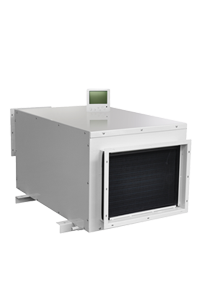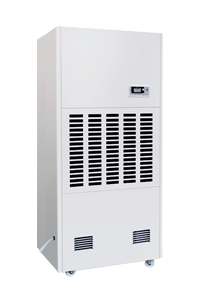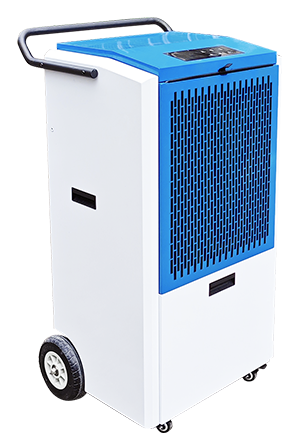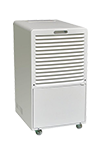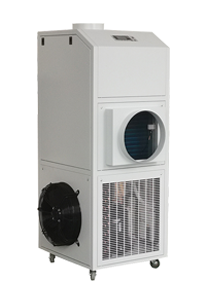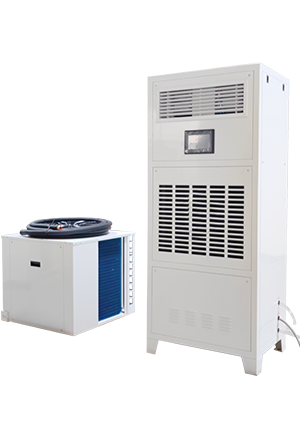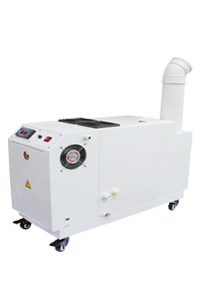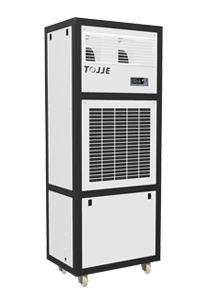Workshop
Industrial dehumidifiers are essential for maintaining optimal working conditions in manufacturing facilities and workshops. They help control humidity levels, which can significantly impact the quality of the products being produced, the efficiency of the processes, and the health and safety of the workers. Here's a detailed explanation of how industrial dehumidifiers can serve as a solution in workshop environments:
1. Controlling Humidity for Material Integrity:
Many manufacturing processes are sensitive to humidity. For instance, high humidity can cause metals to rust, and certain types of adhesives or finishes to not adhere properly. Industrial dehumidifiers help maintain the ideal humidity levels necessary for the integrity of raw materials and finished products.
2. Preventing Mold and Bacterial Growth:
In workshops where organic materials are used, such as wood or textiles, high humidity can lead to mold and bacterial growth. Industrial dehumidifiers reduce the risk of these issues by lowering the moisture content in the air, thereby protecting both the materials and the final products.
3. Enhancing Worker Comfort and Productivity:
A comfortable working environment is crucial for worker productivity and safety. High humidity can make the air闷热 and sticky, leading to discomfort and fatigue. By reducing humidity, industrial dehumidifiers improve the overall working conditions, leading to increased productivity and reduced health complaints.
4. Reducing Energy Costs:
In climates where air conditioning is necessary to cool down the workshop, industrial dehumidifiers can be more energy-efficient than air conditioning alone. This is because dehumidifiers remove moisture, making the air feel cooler without having to lower the temperature as much, thus saving on energy costs.
5. Protecting Machinery and Equipment:
Excess moisture can lead to corrosion and malfunction in machinery and equipment. Industrial dehumidifiers help protect these valuable assets by controlling the environment in which they operate, reducing the need for frequent maintenance and repairs.
6. Facilitating Quality Control:
Consistent humidity levels are important for quality control in manufacturing. For example, in the paint and coatings industry, the drying and curing processes are highly dependent on the humidity levels. Industrial dehumidifiers ensure that these processes occur under controlled conditions, leading to a higher quality end product.
7. Supporting Seasonal Adjustments:
Workshops may need to adjust their humidity control strategies depending on the season. Industrial dehumidifiers can be easily adapted to handle changes in external humidity levels, ensuring year-round control.
8. Ensuring Compliance with Industry Standards:
Certain industries have strict regulations regarding the humidity levels in the manufacturing environment. Industrial dehumidifiers help workshops meet these standards, avoiding potential fines or penalties for non-compliance.
9. Minimizing Downtime:
Unexpected downtime due to humidity-related issues can be costly. By proactively managing humidity levels with industrial dehumidifiers, workshops can reduce the likelihood of such disruptions and maintain a steady production schedule.
10. Providing a Customizable Solution:
Different workshops have different humidity control needs based on the nature of their operations. Industrial dehumidifiers come in various models and sizes, allowing for a customized solution that fits the specific requirements of each workshop.
In conclusion, industrial dehumidifiers offer a comprehensive solution for maintaining optimal humidity levels in workshops, protecting materials and equipment, enhancing worker comfort, and ensuring the quality of the manufacturing process. By investing in an appropriate dehumidification system, manufacturers can improve efficiency, reduce costs, and maintain high standards of production.
1. Controlling Humidity for Material Integrity:
Many manufacturing processes are sensitive to humidity. For instance, high humidity can cause metals to rust, and certain types of adhesives or finishes to not adhere properly. Industrial dehumidifiers help maintain the ideal humidity levels necessary for the integrity of raw materials and finished products.
2. Preventing Mold and Bacterial Growth:
In workshops where organic materials are used, such as wood or textiles, high humidity can lead to mold and bacterial growth. Industrial dehumidifiers reduce the risk of these issues by lowering the moisture content in the air, thereby protecting both the materials and the final products.
3. Enhancing Worker Comfort and Productivity:
A comfortable working environment is crucial for worker productivity and safety. High humidity can make the air闷热 and sticky, leading to discomfort and fatigue. By reducing humidity, industrial dehumidifiers improve the overall working conditions, leading to increased productivity and reduced health complaints.
4. Reducing Energy Costs:
In climates where air conditioning is necessary to cool down the workshop, industrial dehumidifiers can be more energy-efficient than air conditioning alone. This is because dehumidifiers remove moisture, making the air feel cooler without having to lower the temperature as much, thus saving on energy costs.
5. Protecting Machinery and Equipment:
Excess moisture can lead to corrosion and malfunction in machinery and equipment. Industrial dehumidifiers help protect these valuable assets by controlling the environment in which they operate, reducing the need for frequent maintenance and repairs.
6. Facilitating Quality Control:
Consistent humidity levels are important for quality control in manufacturing. For example, in the paint and coatings industry, the drying and curing processes are highly dependent on the humidity levels. Industrial dehumidifiers ensure that these processes occur under controlled conditions, leading to a higher quality end product.
7. Supporting Seasonal Adjustments:
Workshops may need to adjust their humidity control strategies depending on the season. Industrial dehumidifiers can be easily adapted to handle changes in external humidity levels, ensuring year-round control.
8. Ensuring Compliance with Industry Standards:
Certain industries have strict regulations regarding the humidity levels in the manufacturing environment. Industrial dehumidifiers help workshops meet these standards, avoiding potential fines or penalties for non-compliance.
9. Minimizing Downtime:
Unexpected downtime due to humidity-related issues can be costly. By proactively managing humidity levels with industrial dehumidifiers, workshops can reduce the likelihood of such disruptions and maintain a steady production schedule.
10. Providing a Customizable Solution:
Different workshops have different humidity control needs based on the nature of their operations. Industrial dehumidifiers come in various models and sizes, allowing for a customized solution that fits the specific requirements of each workshop.
In conclusion, industrial dehumidifiers offer a comprehensive solution for maintaining optimal humidity levels in workshops, protecting materials and equipment, enhancing worker comfort, and ensuring the quality of the manufacturing process. By investing in an appropriate dehumidification system, manufacturers can improve efficiency, reduce costs, and maintain high standards of production.

